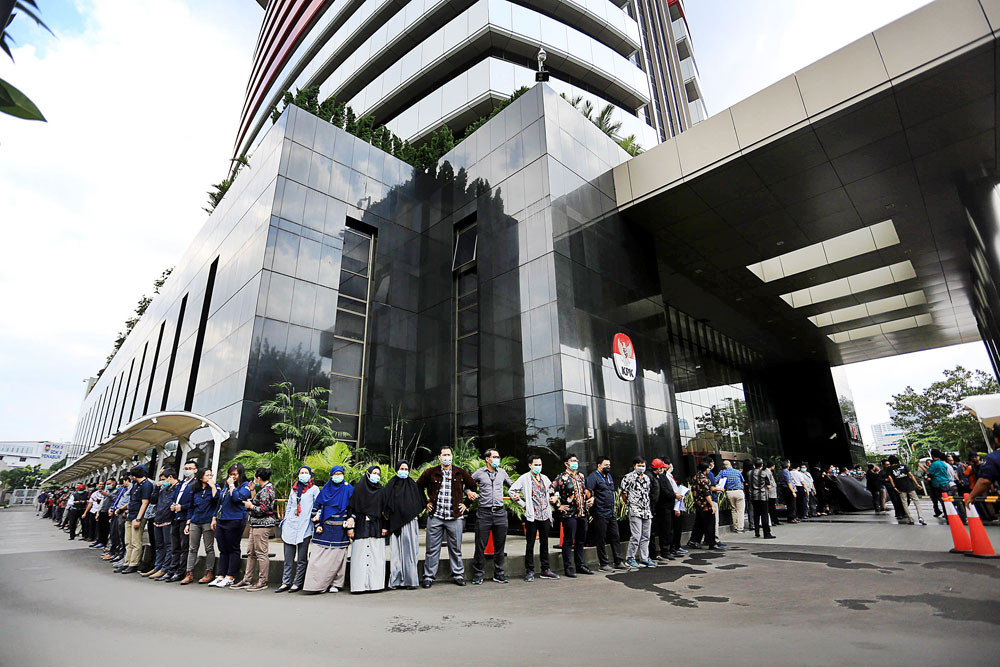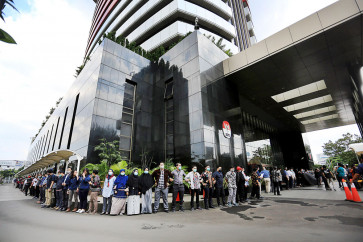Popular Reads
Top Results
Can't find what you're looking for?
View all search resultsPopular Reads
Top Results
Can't find what you're looking for?
View all search resultsHouse tables KPK Law revision, aims for speedy deliberation
The House of Representatives speeds up the deliberation of the long-postponed revision draft on the Law on the Corruption Eradication Commission.
Change text size
Gift Premium Articles
to Anyone
A
fter a delay that lasted a year, the House of Representatives has agreed to resume the deliberation of the revision to Law No. 30/2002 on the Corruption Eradication Commission (KPK) before the legislative session ends on Sept. 30, as well as discuss two other bills with potentially contentious articles against the antigraft body.
KPK chairman Agus Rahardjo said in a written statement on Thursday that the bill could castrate the commission's functions as there were at least nine problematic issues in the draft and it therefore opposed the House's initiative.
“The KPK realizes that the House has the authority to draft the bill. However, it should not use its authority to weaken and paralyze us,” he said.
Agus also mentioned that recent events – starting from the selection of KPK leaders, in which people with controversial track records were included in the candidates' list, to the deliberation of the contentious bills – had put a burden on the commission’s work.
House Deputy Speaker Utut Adianto of the Indonesian Democratic Party of Struggle (PDI-P) led the plenary meeting on Wednesday evening in which all parties agreed upon the legislation body's (Baleg) proposal in a five minutes with no interruption.
The revision consists of several amendments, including controversial points on the 2017 draft that drew public criticism, namely the establishment of an oversight council to monitor the antigraft body’s performance, the making of the KPK as a government body, the requirement for the KPK to obtain permits from the oversight council to conduct wiretaps, the KPK’s authority to issue investigation termination warrants that enable it to stop investigating and prosecuting cases that are not completed within a year, as well as the removal of the KPK's ability to recruit its own investigators.
In the latest draft of the bill, article 37 stipulates that all wiretapping of law enforcement institutions, namely the State Intelligence Agency (BIN), National Narcotics Agency, the police, the Attorney General’s Office and the Judicial Commission, would require high court approval. Only the KPK would be exempt.


















